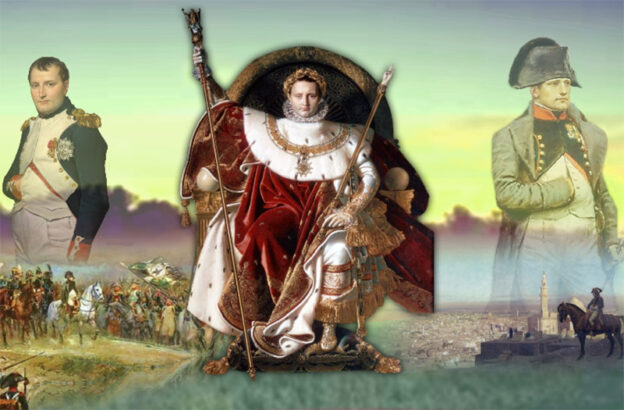Napoleon Bonaparte And Europe [1799-1815]
The history of France and Europe after the 1789 French revolution was dominated by the personality of Napoleon Bonaparte. He was born at Ajaccio on the island of Corsica in Genoa (Italy) in 1769. By birth napoleon was an Italian born to Italian parents. He only became a French citizen because Corsica was annexed by France from Genoa (Italy) a year before he was born.
Napoleon belonged to a family of 13 children 8 of whom survived death. He lived a poor life during his childhood but was lucky that in 1779 he was sent to the military academy of Briene and later in 1784 he joined the military school of Paris where he excelled in military science and mathematics. Because of his good performance in military science, he won a commission as a sub lieutenant of artillery at the age of 16.
While at the military school of Paris he mixed with the children of the nobles and thus felt the inferiority complex as a commoner. That is why he had an unhappy life as a student and was always moody, penny less but studious. That is why one of his teachers remarked that “the young star is made of granite but there is a volcano inside”. He spent most of his time reading historical literature, philosophical writings of jean Jacques Rousseau and read war novels; he was a close associate of maximillien Robespierre. These prepared him for his future career.
The rise of napoleon to fame and power is one of the most astonishing in history. From a humble background, napoleon ruled France and much of Europe for 15 years. During the French revolution, he was a member of the Jacobins club at the rank of a colonel. He proved himself as an able soldier and a great leader for example in 1793 he was entrusted with the expulsion of the British force which was aiding a royalist rising at port Toulon at the age of 25 he was promoted to the rank of brigadier.
In 1795 he saved the convention from a royalist insurrection commonly known as the “whiff of grape shot”, in 1796 he saved the directory government from the Babeuf plot, in the same year he led the military campaign against Austria in Italy (the Italian campaign) and in 1798 he carried out the Egyptian campaign.
On return he found the directory government divided among its directors and he carried out his coup detat of Brumaire in 1799. He became the first consul and in 1801 became consul for life. In 1804 he declared France an empire and ruled France until 1815 when he was overthrown by the allied powers.

